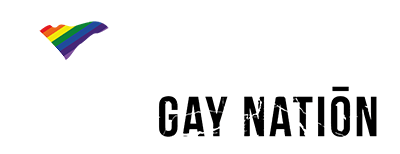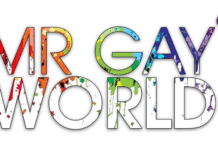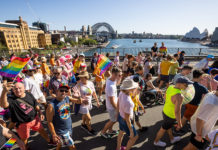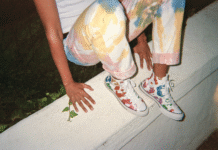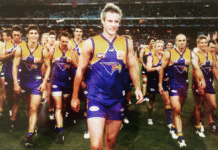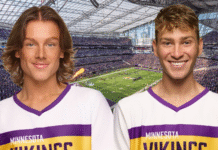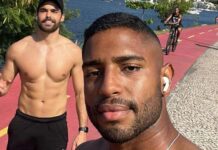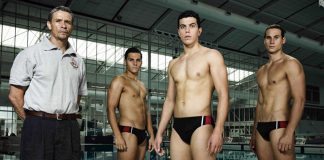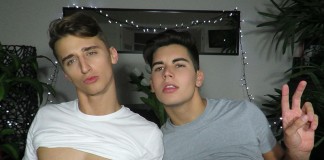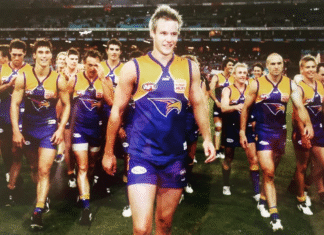
The Australian Football League (AFL) boasts a passionate fanbase and legendary athletes. Yet, its Men’s competition remains a glaring anomaly – one of the few major sporting codes globally without an openly gay player. This stark reality begs the question: Does the AFL have a Gay problem?
A Chorus of Hate: Consider the recent incidents of homophobic slurs hurled at players on the field.
In the 2024 pre-season, North Melbourne coach Alastair Clarkson was embroiled in a homophobic slur controversy. During a heated pre-season exchange with St Kilda defenders, Clarkson allegedly used a homophobic slur. This incident sparked outrage from fans, LGBTQ+ advocates, and sporting commentators. While Clarkson denied any homophobic intent, the AFL fined him $20,000 and handed him a suspended two-match ban, highlighting the seriousness of the offence.
Then, on the past weekend, Port Adelaide forward Jeremy Finlayson was caught directing a homophobic slur towards an Essendon player during a game. Umpire microphones picked up the insult, and Finlayson actually self-reported it to his coaches at 3/4 time and apologised to the unknown player at the end of the game.
Speaking on Sunday, Finlayson expressed his remorse over his actions.
“I take full responsibility for what happened Friday night,” Finlayson said.
“The word I used is very unacceptable in the game of football. We need to stamp it out and I’m very remorseful.”
The incident highlighted the prevalence of homophobic abuse on the field. This, coupled with the Clarkson incident, fueled discussions about the need for stronger measures to address homophobia within the AFL and create a safer space for LGBTQ+ players and fans.
Pressure to Conform: The AFL environment itself can be a breeding ground for anxiety.
The hypermasculine culture, with its emphasis on physicality and toughness, leaves little room for vulnerability or difference. Young men questioning their sexuality might feel like they don’t belong. The pressure to conform and the fear of rejection from teammates, coaches, and fans can be a heavy burden.
Missing Role Models: The absence of openly gay players within the AFL men’s competition is a deafening silence.
Young players grappling with their sexuality crave role models, living proof that success in the AFL doesn’t hinge on hiding one’s true self. Seeing someone else succeed while being openly gay can be a powerful motivator, shattering the myth that being gay is somehow incompatible with AFL excellence.
Positive Steps, Long Road Ahead: The AFL has taken some initial measures, like implementing anti-discrimination policies and conducting anti-homophobia training.
However, the impact seems limited. These initiatives haven’t translated into a tangible shift in the overall culture, where homophobic slurs and negativity still hold sway.
And where is the AFL Players Association in all of this? No statement on either issue from them and it’s hard to find anything regarding the issue on their website or from media interviews. Surely they would deal with gay players on a regular basis, how are they helping them every time an incident occurs on the field?
What Needs to Change? Action is crucial. The AFL and the AFL Players Association need to actively create a welcoming space for everyone. Here’s a roadmap:
Zero Tolerance for Hate: Enforce anti-discrimination policies with a zero-tolerance approach to homophobic abuse from players, officials, and fans alike.
Inclusivity Training: Implement ongoing diversity and inclusion workshops for every level of the organization, fostering an understanding of LGBTQ+ issues and creating allies within the system.
Speak Up for Equality: Publicly support LGBTQ+ causes and initiatives, sending a clear message of inclusivity from the top down.
Make Pride Take Centre Stage: Finally, implement a men’s Pride Round where all teams are involved. Not just two teams like St Kilda and Sydney, it’s time to get serious about the issue.
Give Voice to Role Models: Invite openly gay athletes from other sports to share their experiences, demonstrating that being gay doesn’t hinder athletic success.
Change Takes Time, But Silence is No Option: The AFL needs to show genuine commitment to building an inclusive environment. Until then, the question of whether the AFL has a “gay problem” will continue to reverberate.
Thankfully, positive developments are emerging in Australian sport. Openly gay athletes are competing at the highest levels in other codes. The AFL has the potential to follow suit, becoming a beacon of inclusivity. The responsibility lies not just with the league, but also with fans and the media to break the silence, stand up for inclusivity, and ensure everyone has a fair shot at achieving their AFL dreams.
Last Updated on Apr 9, 2024
The news team for Gay Nation love tips from our readers. Got tips or a news story that you would like published? Go here to tell us something.
Visit the Gay Nation store Now

